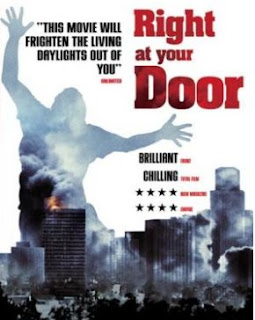
The Casey Affleck-fest continues! This movie was directed by bro Affleck, the other one, what's-his-name, the Garner one. Casey is Patrick Kenzie, a private eye in Dorchester, MA who's called in to investigate a case of a missing four-year-old girl. Twists and turns ensue as Kenzie, his girlfriend/partner Angie, and three cops navigate Dorchester looking for Amanda.
I thought I would not be able to extract the character of Robert Ford out of Casey Affleck, and that I might find him repulsive and a bit frightening forevermore. And while occasionally, when Kenzie is at a loss for words, I expected Bob Ford's stock phrase "I'm sorry you feel that way" come out of his mouth, I mostly was able to accept the transition. The callowness of Ford, the youth and cockiness that made all of the people in "Assassination of Jesse James" want to beat him down on sight, continues in Kenzie, who pisses everyone in one bar off so much that he has to pull a gun on them to get away. But there's a much more likable moral depth there, as well.
The main problem I had with this movie was with the casting of Michelle Monaghan as Affleck's ever-present but silent girlfriend/"partner," Angie, who never does anything but just sit with him while he asks the questions. She is so much prettier than everyone else in this movie that it ruins everything every time the camera lands on her. One character, after realizing that they went to the same high school, asks Angie "Still a bit conceited, I see?" This line is trying to make the willowy, OC-esque girl actually belong to this world in some way, but since she has no back story, no accent, no feeling, no words, it's really hard to see her as a part of it. Affleck is too attractive, as well, but in his Adidas jackets and with his incipient forehead lines, you can kind of see him as a fresh-faced Irish Bostonian about to go to seed. You could, that is, if Michelle's character weren't right next to him the whole time. Together, the two look like they've been cut out of another, prettier, teen-ier movie and inserted into this one.
Apparently some people from Boston were mad that Affleck made them look so ugly. And I'm a little mad that the Afflecks, from Cambridge, claim to speak for Dorchester (am I splitting hairs?) But it's funny that
this article, from Slate, which defends Dorchester from Affleck's sometimes ugly portrait, is written by Patrick Keeffe, who I happen to know grew up in Dorchester but then went to my fancy-pants high school alma mater, Milton Academy. How close does somebody have to be to a place in order to defend it or portray it properly? That's one of those koans that will never be answered, but I like what Patrick Keeffe says here: "It's Dorchester by way of Diane Arbus." Yes: there's the same sense of dirty fascination with the goings-on inside those row houses as one gets when looking at Arbus photos. The comparison is particularly apt when the film gets to the point when Affleck enters the boarded-up house where a child molester has kept a seven-year-old boy hostage. Must the child molester have a rounded head with overly slitty eyes, like he's bordering on mongoloidism? Pedophiles aren't a different phenotype, so far as I know.
But anyway. I think the film is saved from charges of exploitation by the ending. Don't read this if you don't want it spoiled. Okay. Kenzie faces a choice: take the child, Amanda, back from the kindly police captain who has kidnapped her with the help of her uncle, and give her back to her slatternly mother; or leave her to grow up a nice, middle-class life. He chooses the former, which enraged me as much as it does Angie, who leaves him for it.
But the way I read it, Kenzie has to choose to give the child back to the mother, because if he chooses the other way, he's basically saying that Helene, the mother, and tangentially, Dorchester itself are inherently toxic and dangerous. He's demonstrating faith in human nature and faith in his community. Although the film leaves you questioning whether Kenzie made the right choice, there's still a sense that in some way, the director is demonstrating his faith in Dorchester as a real, non-sensationalized place, where children don't have to be "lost" permanently.








.jpg)